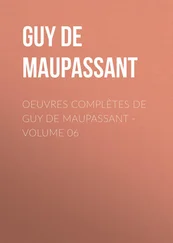“So did you have a nice time last night?”
A non-committal shrug of the shoulders.
“You were home early enough.”
“Yeah, I guess.”
“But you had fun?”
“Sure.”
He hadn’t had fun and Vera knew it. If Daniel had had fun he wouldn’t be spending all his time with an old man, watching TV.
There was no getting around it, this was a miserable time of year. Miserable because Vera could not forget that November was the month she had set her sights on Stanley, made up her mind to have him. Miserable because, year after year, she went through it, sad and filled with longing. Longing for that room Stanley had led her to, up that steep, narrow flight of stairs the night that Thomas had smashed Stanley’s window. She missed that room dreadfully, ached for it in the cold of November. She could still see it as clearly as if it were yesterday. Books stacked along three walls, still more piled on windowsills and chairs, heaped on tables. To take a seat on the chesterfield it had been necessary to disturb two dictionaries, one English, one German. In the few feet of available wall space not crammed with books, up near the ceiling, Stanley had thumbtacked portraits of important men and women. Some Vera had recognized: the Roosevelts, Franklin and Eleanor; Charlie Chaplin, Einstein. Others she had been unfamiliar with. Mixed in with the portraits were reproductions of paintings. One took Vera’s fancy because it reminded her of Saskatchewan. A flock of coal-black crows floating in the sky above a yellow field of grain.
It made her sorrowful and lonesome to think of that long-ago night, Stanley busying himself with coffee in the kitchen and she moving excitedly about the living room, stopping every now and then to pick up and examine a book, to read a title or an author’s name on a spine. Gorky, Arrowsmith , Saroyan, An Outline of History , Odets. Vera had felt buoyant, intoxicated. Maybe it had been the music on the phonograph, exuberant music composed of strange clashing, jangling sounds. It had made her disdain the very thought of sleep.
When Stanley came in carrying the coffee pot, Vera had asked him about the books. The question had no sooner left her mouth than she was afraid he might consider it rude. It was obvious that he didn’t. He had seemed delighted to talk about such things. Stanley had said that it was from his father he had inherited a passion for music, for reading, for collecting books. “In the old country my father was a tailor,” he had explained to Vera, “and tailors and cobblers had a reputation for learning. Their work was quiet work and in the large shops they sometimes pooled their money and hired a poor student to read to them while they sewed, or they took turns reading to one another. That was how my father came to know the Torah practically by heart. Not only the Torah, but also George Sand, Hugo, Dickens, and many of the Russians, writers who were popular with the socialists in the shops. ‘Toireh iz di besteh S’choireh,’ he used to say to me. It’s Yiddish and it means that learning is the best commodity. I suppose I took him at his word,” Stanley had said, looking around him.
Vera had not been sure what Torah or Yiddish were. All she knew was that they were Jewish. She didn’t ask for fear of appearing stupid and ignorant.
The two of them talked late into the night or, more correctly, early into the morning, drinking lots of coffee sparingly anointed with whisky. Stanley seemed to naïvely regard himself as something of a devil for offering a lady whisky, and measured hers by the thimbleful. Vera liked him for that. She liked him for being softly spoken and for carefully and deliberately forming his sentences before delivering them. His thinking through them showed on his face. She liked him for the encouraging way he had of listening to what she said; a way which never suggested that this was a trade-off, part of a bargain which contracted that she was obliged to listen to him. She actually saw him brighten when she told him she was from Saskatchewan. “Tommy Douglas!” he exclaimed, as if the one name couldn’t be said without the other. He questioned her about the CCF and she found herself acting as if she and her family had always been supporters, even though she knew very well that her father was a Gardiner Liberal. She did this because Stanley told her he was a socialist. “Eugene Debs,” he said, pointing proudly to one of the photographs on his wall.
Vera did not ask him who Eugene Debs was. She believed she could guess what general category he fit into.
Vera found herself telling Stanley about her work at the theatre, spicing her story with anecdotes about Mr. Buckle. She liked Stanley Miller for the ironic laughter that greeted her tales about the manager. She filled him in on her woeful experiences with Thomas. She liked him for not laughing at these. Several times she interrupted herself, saying, “But you must be tired…” He always dismissed the suggestion. “Remember, I’m the all-night reader. The regular night owl.”
Vera noted how thin he was. That he smoked too much. That he drank too much coffee. That he was at least forty-five, maybe older.
Some time after four o’clock, Stanley ran out of coffee and they switched to tea. He brewed it in a thing he called a samovar, the way his parents had. Both of them were dead. He had no brothers or sisters.
Stanley demonstrated how his father had drunk his tea, sipping it through a sugar cube clenched in his front teeth. He urged Vera to try. She was game. It wasn’t the whisky either, she hadn’t had enough.
Even though she kept consulting her watch and saying she must go, she didn’t. It was nearly eight o’clock in the morning before she left; Stanley had to open his doors in an hour. Then came the only awkwardness of the entire night, when they shook hands and said goodbye, Vera hesitating, waiting so that he would have the opportunity to suggest they meet again. He didn’t.
But Vera had no intention of letting it fizzle out and end so lamely. She reasoned that an old bachelor like Stanley probably lacked confidence with women, that’s why he hadn’t dared to ask her for a date. A little nudging might be required, to show him he was on safe ground. And the smashed window provided an excuse, a plausible reason, for her to make amends for bringing this misfortune down on his head.
During the course of the evening, Vera had asked Stanley who his favourite writer was. When he had told her it was someone whose name sounded like Mountain to Vera, she had nodded her head and done her best to appear knowledgeable. Setting out two days later to buy a thank-you present for Stanley, she went in search of a book by that particular author.
“Mountain?” the lady who clerked in the snooty bookstore with all the tall bookcases had said. There were four female clerks in the store and Vera could scarcely differentiate one from the other. They all appeared to have been stamped out by the same cookie cutter. Tightly waved grey hair, tweed skirts, sweaters, brown oxfords, and glasses which hung on thin chains, dangling against insignificant bosoms, were common to all four. “Mountain?” said the woman again, eyeing Vera up and down as if to suggest she had her nerve, wasting a person’s time. “And what does Mr. Mountain write?”
“I’m not sure,” Vera had replied tentatively, beginning to feel more and more wasteful of time and patience. “All I know is that it isn’t novels.”
“Not very helpful, I’m afraid,” said the woman, “seeing as there are so many authors who don’t write novels. Really, I’m sure we don’t have it. I’m quite familiar with all our stock and for the life of me I don’t recollect any Mountain.”
Vera, however, was stubborn. When she wanted something, she wanted it. Besides, she didn’t have much time; she was expected at the theatre where she had a matinee to work. “You have to have it!” she blurted out. “He’s a famous writer!”
Читать дальше












